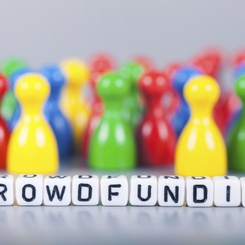Social entrepreneurship in generating a lot of interest around the world – and it’s also getting a lot of attention from researchers. The trouble is, the great majority of existing research is based on individual case studies and success stories and fails to look at the bigger picture. How much to we really know then about this extremely diverse array of institutional and individual drivers of social entrepreneurship activity?
To address this research gap, this paper proposes and tests a methodology that represents the first theory-based data collection approach for social entrepreneurial activity on a global scale, enabling country-comparisons on social entrepreneurship. We developed a questionnaire that is integrated in the largest existing research effort to collect data on regular entrepreneurial activity, the Global Entrepreneurship Monitor.
The research question that triggered this paper was simple: “how can we develop a methodology that will allow us to measure social entrepreneurship across the world in a way that I consistent with current definitions of entrepreneurship?”
Although we may not have entirely finished answering the question, our work opens up venues for further research and begins to suggest some intriguing trends.
Social Entrepreneurs are a “Rare Breed”
First, our research appears to support the argument that social entrepreneurs are a “rare breed”. But while rare, they are extremely influential. Individuals like Mohammad Yunus of Grameen Bank (Bangladesh) or Ibrahim Abouleish of Sakem (Egypt) have been able to put in place radically novel solutions for persistent social pains in their societies. And given the rarity of social entrepreneurs, yet their significant social importance, we underscore the necessity to better understand what drives them, where they work, and how they interact with their contexts.
Higher Economic Development Means More Social Entrepreneurs
One might be inclined to argue that lower levels of economic development would create more opportunities for social entrepreneurs and thus produce higher levels of social entrepreneurship. Surprisingly, however, we found more support for the opposite argument: individuals who feel economically secure are more likely to have post-materialistic values and attach greater importance to emotion, personal identification, and quality of life: strong motivators for social entrepreneurial activity.
Different Kind of Capitalism, Different Levels of Social Entrepreneurship
Although further research would be needed to investigate how institutional context variables explain the prevalence of social entrepreneurship, we found that the more liberal the economy, the more conducive it is to the creation of social businesses. This appears to explains why regions dominated by a cooperative economy (most European economies) tend to have fewer social entrepreneurs than their more liberal, American counterparts.
Overall, our research is the first attempt to allow researchers to further explain and understand the phenomenon of social entrepreneurship. By providing a dataset of nearly 6,00 early stage and established social entrepreneurs, we believe this method provides ample opportunity to do so.









